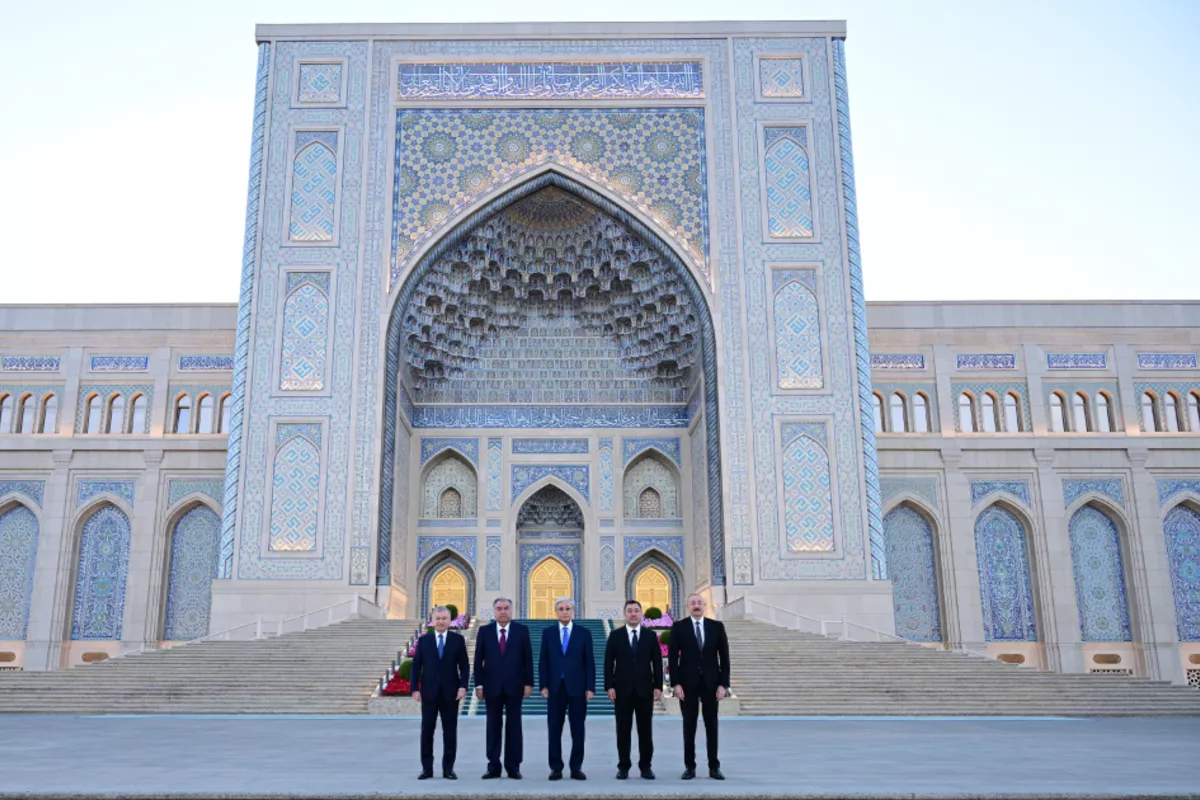
photo: AZERTAC
On November 15, President of Azerbaijan Ilham Aliyev visited the Center of Islamic Civilization in Tashkent.
The foundation of this landmark institution was laid in 2018 under a decree by President of Uzbekistan Shavkat Mirziyoyev, The Caspian Post informs via local media.
Created with the participation of hundreds of scholars, experts, and cultural figures, the center spans more than 10 hectares and reflects the architectural heritage of ancient Samarkand, crowned by an impressive 65-meter dome.
The complex brings together research facilities, publishing departments, a vast library, archives, a manuscript fund, and a national register for rare manuscripts. Its exhibition halls feature historic artifacts and masterpieces, presented with cutting-edge digital technologies that highlight the creative legacy of past civilizations.
The center’s library houses 100,000 manuscripts and over one million books, alongside the scientific department of the Center of Islamic Civilization and offices of international organizations. The museum is organized into thematic galleries, including “Pre-Islamic Civilizations,” “The First Renaissance,” “The Second Renaissance,” “Uzbekistan in the 20th Century,” “New Uzbekistan - The Foundation of the Third Renaissance,” and “The Holy Quran.”
At the heart of the complex stands the Hall of the Holy Quran, which preserves the ancient and priceless Muskhaf Usman. The exhibit also features rare copies of the Quran produced during the eras of the Samanids, Karakhanids, Khorezmshahs, Uzbeks, and Temurids, as well as early translations into old Uzbek and unique handwritten editions from around the world. The center is also actively developing modern religious-educational and media projects.
A striking highlight is the “Wall of Time,” a multimedia installation that uses holography and projection technologies to present major historical eras, discoveries, and prominent figures. The center works closely with international institutions, including UNESCO and ICESCO, strengthening its role as a global hub for cultural and scholarly exchange.
Share on social media